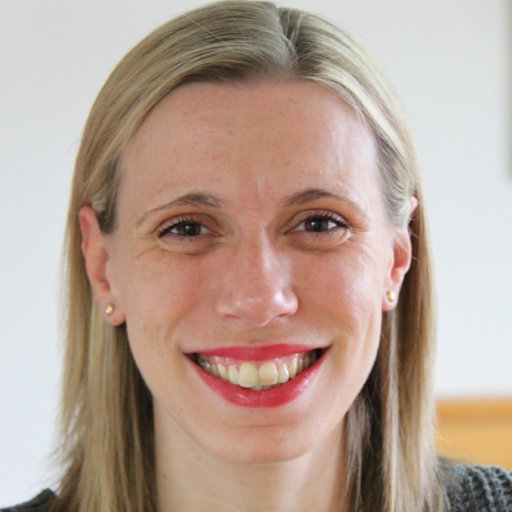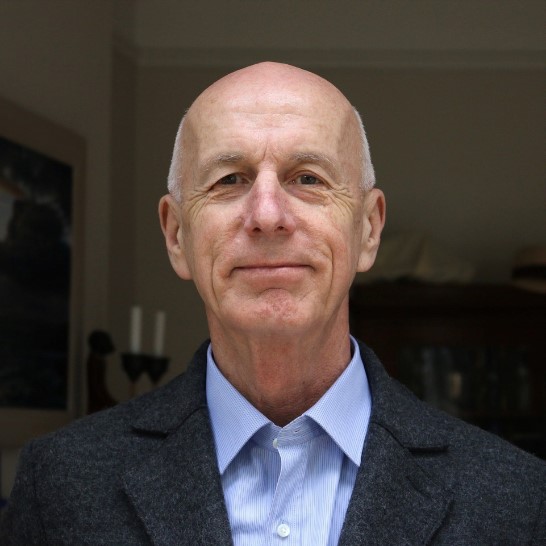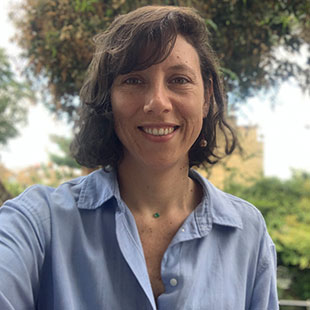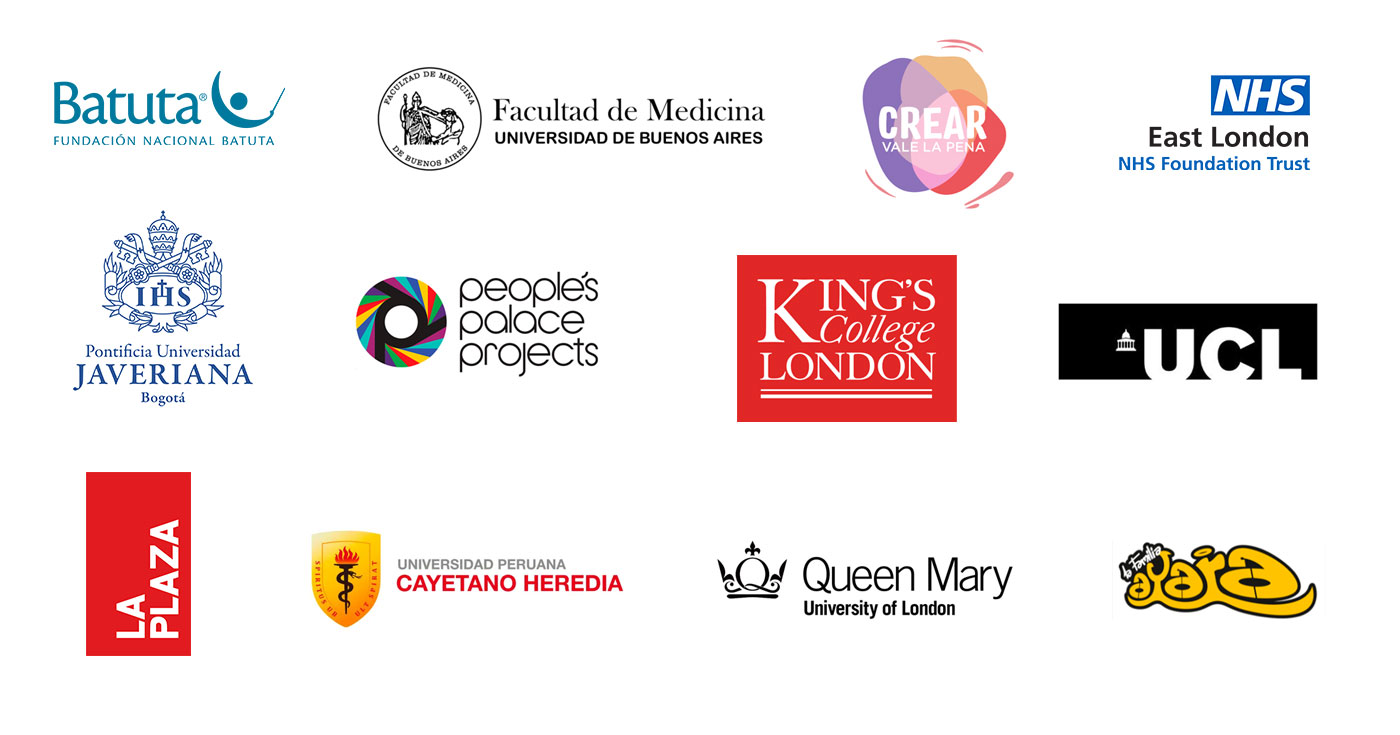UK Team
The Unit for Social and Community Psychiatry (QMUL)


The Unit for Social and Community Psychiatry (USCP) is jointly operated by Queen Mary University of London, and East London NHS Foundation Trust. It was established in 1997, and is located in the London Borough of Newham, in East London.
The USCP conducts research on how social interactions can reduce and overcome mental distress. Social interactions are understood as everything that ‘happens between people’ which includes interactions in societies, communities, groups, families and health care settings. The research is multi-disciplinary, aims to innovate and involves the development and testing of novel interventions in mental health care. The Unit plays a leading role in various national and international collaborations.
The Unit is also involved in teaching, and in the planning, evaluation and improvement of mental health services. Since 2012, the Unit is a World Health Organization Collaborating Centre (the only one specifically for Mental Health Service Development worldwide), and since 2017 it hosts an NIHR Global Health Research Group for Developing Psycho-Social Interventions.
Since 2013, the Unit has generated more than £25m competitive research, mostly from the National Institute for Health Research, the European Commission and the Medical Research Council.

Chief Investigator
Professor Victoria Jane Bird
Victoria is a lecturer in Mental Health Care at Queen Mary University of London. She is currently a Principal Investigator on a number of trials including global health projects assessing resource-oriented approaches to community mental health care.
Her research interests include quality of life for people with chronic mental and physical health conditions and global approaches to community based mental health care.

Programme Manager
Cat Fung
Catherine has an MA in Experimental Psychology from the University of Oxford and is a qualified psychological wellbeing-practitioner. She is currently a Research Fellow at the Unit for Social and Community Psychiatry and programme manager for OLA. At the Unit, she was previously project manager for the NIHR Global Health Research Group on Developing Psycho-Social Interventions, working with partners in Uganda, Bosnia and Herzegovina, Colombia, Peru, Argentina and Pakistan. She has also worked at King’s College London as a researcher with people with severe mental illness, and at iCope Camden Psychological Therapies Service using low intensity cognitive behavioural interventions with people experiencing depression and anxiety. She is interested in the role of the arts (particularly music) in mental health, and involving families and technologies to improve mental health care.

Chief Investigator
Professor Stefan Priebe
Unit for Social and Community Psychiatry
Stefan Priebe graduated in Psychology and Medicine, and qualified as Neurologist, Psychiatrist and Psychotherapist. He was Head of the Department of Social Psychiatry at the Free University Berlin, before in 1997 taking up his current position as Professor for Social and Community Psychiatry at Queen Mary, University of London. He is also Director of the WHO Collaborating Centre for Mental Health Service Development and of a NIHR Global Health Research Group.
His research group in East London runs several programmes, mainly studying how social interactions can be utilized to reduce mental distress. This involves the development and evaluation of novel psycho-social interventions, e.g. he developed the DIALOG+ intervention which makes routine patient-clinician meetings therapeutically effective.

Research Assistant
Dili Stanislaus
Dili has an MSc in Global Mental Health from King’s College London and the London School of Hygiene and Tropical Medicine. She is currently a research assistant at the Unit for Social and Community Psychiatry, working on two MRC funded projects: OLA and BRiCs. Her research interests include global mental health, psychological interventions and adolescent mental health.
Pragmatic Clinical Trials Unit (PCTU)

The Pragmatic Clinical Trials Unit (PCTU) Queen Mary University London has been conducting clinical trials and other research studies since the 1990s. The unit obtained reistrations with the UK Clinical Research Collaboration in 2007, and has been funded by the National Institute for Health Research since 2008. Since then, the PCTU has expanded to lead and collaborate in a large number of multi-centre trials and other studies across many clinical areas. PCTU studies were initially focused in primary care and mental health. Over time the unit’s clinical strengths have expanded to include women’s health, colorectal surgery, and most recently, critical care and perioperative medicine.

Co-applicant / Statistician
Reverend Professor Sandra Eldridge
Sandra is Professor of Biostatistics and Director of the Pragmatic Clinical Trials Unit at Barts and The London School of Medicine and Dentistry. She is also Associate Dean for Strategic Developments and the lead for Equality, Diversity and Inclusion within the School, an Honorary Fellow of the Royal College of General Practitioners, and an NIHR Senior Investigator. She has sat on the Royal Statistical Society’s Council, the Society for Academic Primary Care Executive, and various NIHR funding panels. Sandra has an international reputation as a trial statistician with interests in cluster randomised trials, pilot and feasibility studies and pragmatic trials. She leads the collaboration that developed the CONSORT extension for pilot trials and leads the adaptation of the new Cochrane Risk of Bias tool to cluster randomised trials.
People’s Palace Projects

Is a research centre on arts and social justice based in the School of English and Drama at Queen Mary University of London, and a National Portfolio Organisation (NPO) of Arts Council England. It engages over 87,000 participants and 568 artists/organisations and has implemented award-winning projects on armed conflict and with young people in social care.
Through participatory artistic projects, performances, educational initiatives, and debates, PPP seeks to transform people’s lives and realities. It brings together artists, activists, academics, and audiences for projects that address a wide array of social justice and human rights issues.
PPP works primarily with people from vulnerable territories in the UK and other LMICs countries, especially in Brazil, promoting cultural and knowledge exchange. Recent outstanding projects include a partnership with the Kuikuro community to produce an artistic residency and exchange programme that created an immersive digital experience for London museumgoers; partnership with the Brazilian NGO Redes da Maré in a set of projects, including research on Violence Against Women and Girls; and support the UK adaptation of Agência de Redes programme, which supports young people to set up social enterprise projects (The Agency).

Artistic Director
Paul Heritage
For over three decades, Paul Heritage has created cultural projects as an investigation of the power of the arts in social change, including award-winning HIV/AIDS, education and human rights work. Paul is noted for his prison projects in Britain and Brazil, reaching tens of thousands of prisoners, guards, and their families with work on arts and human rights; and for his work with AfroReggae in Brazil and the UK from 2001-2012.
In recent years, he has focused increasingly on the relationships between arts and wellbeing, Creative Economy, preservation and artistic exchange between artists and cultural agents in Brazil and the UK and indigenous communities in Central Brazil. Besides OLA, he is currently leading on and contributing to other three studies on the arts contributions to mental health, in Brazil, India, Pakistan and the UK.

Deputy Project Manager
Bettine Solf
(She/Her) is Peruvian an actor/ singer-songwriter & multi-instrumentalist based in London, UK. She trained at CSSD and at Mountview’s MA Acting Postgraduate Masters.
She’s performed extensively in Peru, USA and the UK. Some music and theatre work include: two studio albums as a solo performer (Soy Opuesta 2013 & Map The Gaps 2016). Her credits are: Opening acts for The Cure (Peru), The Killers (Peru), Julieta Venegas (Peru), Bare The Musical (Peru), Mamma Mia (Peru), Culture Collide Festival (L.A.), Barrio (Southwark Playhouse), Police Cops The Musical (New Diorama), Breakfast Club (Short Film), Try Again based on female LatinX actors (Camden’s People Theatre & The Hope) and with Run To The Nuns: A New Musical at the Brighton Fringe and Bitesize Festival at The Riverside Studios – London.

Project Manager
Lizet Chavez
Lizet Chavez Prado is a Peruvian actress and performance maker based in London, UK. Interested in performing arts projects based on collective and interdisciplinary practices. Her work is characterised by its social and intimate content using audio and visual mediums. Graduated from the International School of Theatre Jacques Lecoq (France). Bachelor’s degree in media studies from San Martin de Porres University (Peru) and a Master’s degree in Performance Making from Goldsmiths University (UK). She has been a performer since 2007, participating as an actor in Theatre, TV and Feature Films, as well as an acting coach for film and theatre productions, acting teacher and art facilitator.
Lizet worked at Far Apart LATAM in August 2021 and in January 2023 she joined the PPP UK team as a project manager in the area related to mental health and young people.
Kings College London

The Health Service and Population Research Department (HSPR) conducts world-leading research and education using the social and health sciences to better understand and to improve health outcomes, systems, and care, both locally and globally, particularly in disadvantages and marginalised populations. HSPR is multi-disciplinary, including health care professionals, epidemiologists, economists, implementation scientists, qualitative methodologists, service users, social scientists, and statisticians, and we work with academic, clinical, and policy organisations locally, in London and the UK, and internationally, in low, middle, and high-income countries.

Co-Investigator
Professor Craig Morgan
Craig Morgan is Professor of Social Epidemiology, Head of the Health Service and Population Research Department at the Institute of Psychiatry, King’s College London, and Co-Director of the ESRC Centre for Society and Mental Health. He has previously held a MRC Special Training Fellowship in Health Services Research, and completed his PhD in Social Psychiatry, at the Institute of Psychiatry. His research is focused on social and cultural influences on the onset, course and outcome of mental disorders, particularly during adolescence, and he has led multi-country programmes on these topics, funded by, among others, the MRC, Wellcome Trust, European Union, and ESRC. He has published over 200 academic papers on these topics, and edited two books, Society and Psychosis, published by Cambridge University Press, and Principles of Social Psychiatry, published by Wiley-Blackwell. He is editor-in-chief of the journal Social Psychiatry and Psychiatric Epidemiology.

Co-Investigator
Professor Ricardo Araya
Professor Araya’s research interests include the aetiology of common mental disorders, inequalities and their link to the mental health of populations with special emphasis on international comparisons, and effective treatments for common mental disorders, such as simple and brief interventions using non-medical workers and strong community participation. Several of his current projects use technological platforms to support the delivery of mental health interventions. He is involved in projects in a large number of countries in Latin America, Africa and Asia. He has a special interest in projects that integrate mental health problems in the care of other diseases i.e. hypertension, diabetes, HIV and so on.
University College London

The Division of Psychiatry at UCL is an interdisciplinary centre for research and teaching concerned with mental health and illness. Our aim is to address clinical problems in order to achieve benefits for patients and public health, using insights from basic science.

Co-Investigator
Professor James Kirkbride
James Kirkbride is currently a Reader in Epidemiology in the Division of Psychiatry at UCL. He has previously held a Sir Henry Dale Fellowship (UCL, 2014-18) and Sir Henry Wellcome Fellowship (University of Cambridge, 2009-13). Currently he works with Swedish, UK and Canadian cohort data and is involved in active MRC projects in Latin America and South Africa. He has previously led two major studies of first episode psychosis (SEPEA, EU-GEI) as well as the PsyMaptic population-based FEP prediction tool (www.psymaptic.org).
James is a psychiatric epidemiologist with a background in social science, having completed his Ph.D. at the University of Cambridge in 2007. He previously obtained an M.Sc. in Epidemiology at the London School of Hygiene and Tropical Medicine (2003). Prior to that, he obtained a First Class Honours degree in Geography, Business and the Environment at the University of Nottingham (2002).
Funded by

Partners


Copyright © 2021. All Rights Reserved
Financiado por

Socios




